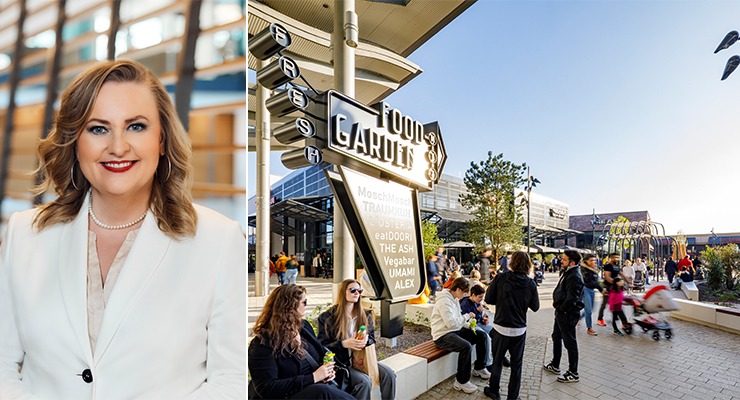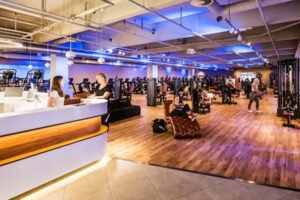Placemaking Project by Joanna Fisher, CEO of ECE Marketplaces

NAME OF PROJECT: New “Food Garden” at Main-Taunus-Zentrum
DEVELOPER: ECE Marketplaces
OWNER: Deutsche EuroShop & closed-end real estate fund managed by DWS
PROJECT HIGHLIGHT: At Main-Taunus-Zentrum, one of the largest and most successful shopping centers in Germany, ECE Marketplaces has realized the new “Food Garden” on behalf of the owners. The project creates a new destination and an additional point of attraction in the middle of the center and is a prime example of the new use in place of a department store – and has been delivered as planned on time and fully let.

The new “Food Garden” has just opened in April and is a real highlight for the center and a good example of how to constantly and specifically further develop a retail real estate asset: The aim of the strategic further development is to create additional visitor incentives and attract new customer groups with an expanded range of food outlets in the “Food Garden”, to further increase the quality of stay and dwell time in the center and to consistently further develop the tenant mix at Main-Taunus-Zentrum.

So far, there have been comparatively few dining options for a center of this size and quality, which already scores highly with a very large catchment area, high dwell time and a high average turnover per visitor. In addition to the attractive tenant and branch mix, attractive gastronomy offering is another important argument in favor of a longer journey time.
Secondly, the development of the new gastronomic hub for the MTZ is a prime example of how shopping centers can flexibly and successfully adapt to changing customer wishes and market conditions: The “Food Garden” has been built on an area of around 9,000 sq m and with a total rental space of 4,000 sq m in place of a former Karstadt department store and has created a new usage concept adapted to the needs of the center and its customers.

The buildings were constructed using sustainable and resource-saving timber construction methods. The new gastronomy tenants in the Main-Taunus-Zentrum are the steakhouse “The Ash”, the pizza-pasta concept “L’Osteria” and the restaurant and bar operator “Alex”, the Japanese noodle bar “MoschMosch”, the Indian concept “EatDOORI” as well as the regional tenants Traumkuh, Vegabar and Umami.
The owners Deutsche EuroShop and a closed-end real estate fund have invested around 28 million euros in the project for the strategic development of the Main-Taunus-Zentrum. The project was developed, planned, let and implemented by ECE Marketplaces, which also operates the center.

“When the Karstadt department store was to close at Main Taunus Centrum, a lot of work started at ECE Marketplaces to decide with the owners, Deutsche EuroShop and a real estate fund managed by DWS, what to do with the space. It was 2020 and we were in the middle of COVID. The first proposals were to replace the department store with more retail boxes, perhaps a food court or a street food market. None of these felt right and it was that point that a small group of people and I sat down and workshopped the future. The vision was born out of a clear strategy to provide what guests would need after COVID, knowing that outside space, fresh air, social space and great food and drink will be central to guest needs. The results are spectacular and the guest feedback incredibly positive. It is their Food Garden, and they love it!” explains Jonathan Doughty, F&B Expert, and Managing Director of Viklari Consulting, who acted as consultant for the project.
Find more top placemaking projects here.







